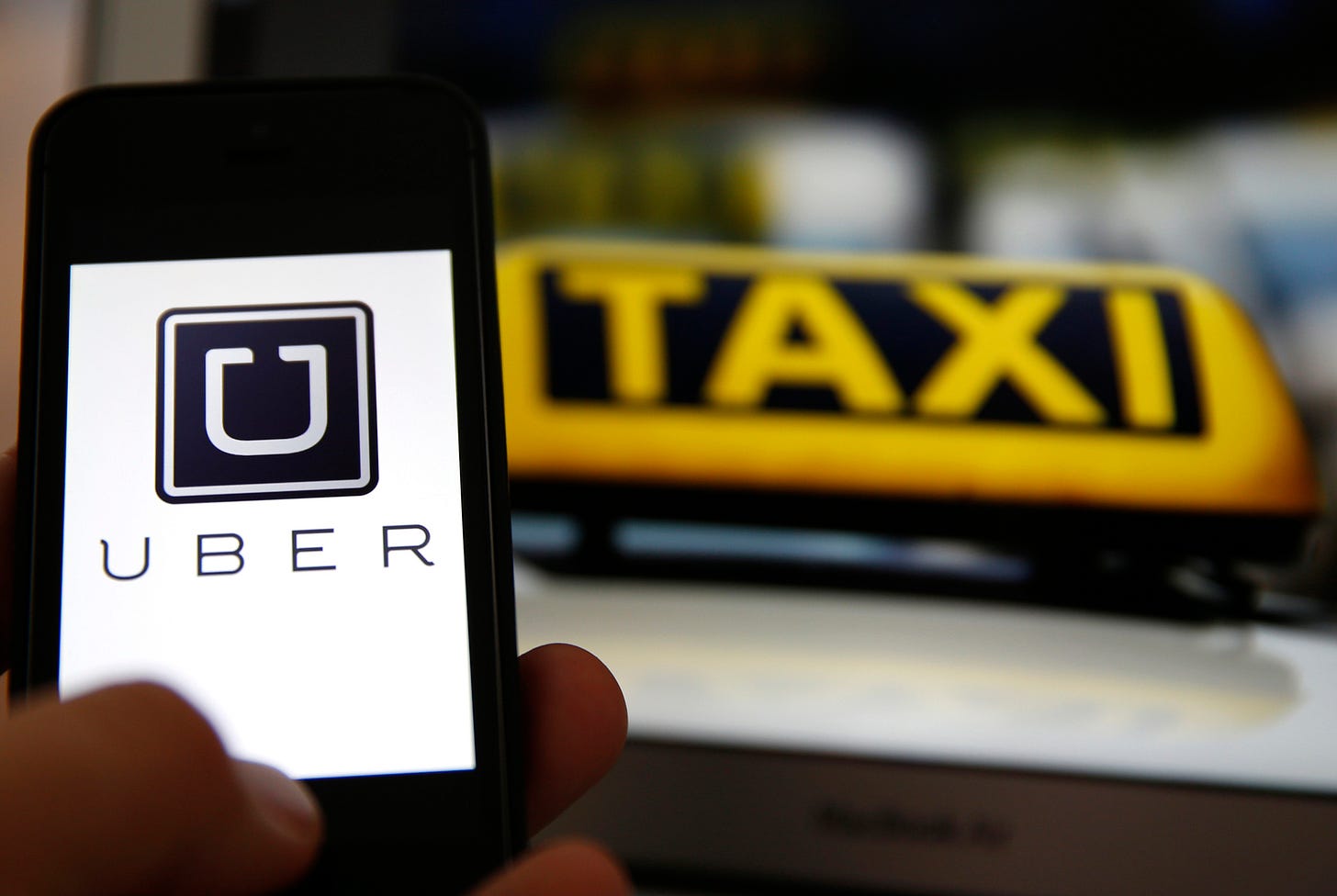Über – Under

The Uber problem is a classical Libertarian one, but not only in the sense you may think it is.
On the one hand, it is a classic libertarian success story about the power of the free market, individual choice, reputation based services, entrepreneurship and we could go on. On the other hand, it is most divisive. No business in recent history created as much strife and conflict or faced as vehement opposition as Uber does. We may understand the opposition coming from the state, its regulators and the politicians. What seems puzzling is the opposition from cab drivers.
It reminds me of an old joke about a poor peasant who frees a genie from his bottle-prison. “I grant you one wish” says the Genie. “what would you want me do?” “My neighbor has a wonderful cow” says the peasant, “she is beautiful, healthy and produces a lot of milk” “….and you want one just like it?” asks the genie. “No” says the peasant. “I want his to die.”
The taxi industry, all around the world, could use Uber as an opportunity to shake off their own shackles but instead, they want Uber to be shackled just as they are. Misery wants company.
The state has everything to lose. Control, income, power. Licensing bureaucracies may cease to exist. So may the corrupt system that in many places developed around it. The state and its stakeholders will do anything to make Uber’s life impossible. Their attitude, their political interest is understandable. What is difficult to understand are the choices of the cab drivers. They can choose freedom, flexibility, self reliance and fair competition on one hand and virtual slavery with miserable income security on the other. They could have a cow just as wonderful as their neighbour’s, but they prefer shared misery. Or so it seems. My assessment is not complete without identifying the benefits of state protection.
The advantages and costs of cab licensing: Limited competition. Gratuities. The ability to cheat and have a portion of your income off the books. No pressure of quality control. BUT: you have to pay dearly for the ‘protection’ of the state. It’s a racket.
The advantages and costs of Uber: Better income. More freedom and flexibility. BUT: you have to be nice and competitive and you cannot cheat.
When cab drivers make a choice, it all comes down to perception, an evaluation of the costs and benefits of the two options. That perception is also fundamentally moral. How do we see our prospects? What can bring us more benefits? The honest or the dishonest way? The free competition of the market or the protection racket of the state? The state and its agents are doing their best to convince its beneficiaries that their offer is the better one. They are doing a pretty good job convincing not only the cab drivers but the rest of society as well that the world is a mean and evil place where one can only get ahead with the help of a powerful protector.
Uber exposes the greatest challenge libertarians have to face. The worst enemy of liberty is not the state, but the people enabling it. The state can’t do it alone. It needs the support of the people it can bribe. The libertarian task is to convince those same people that the state can never offer a fair deal. It will always cost them more than what they get in return.



